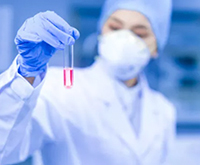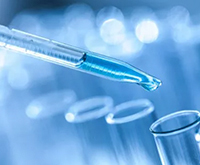Protein Induced by Vitamin K Absence or Antagonist-II (PIVKA II Tumor Marker)
In the absence of vitamin K, liver cells cannot depend on vitamin K in the synthesis of standard clotting factors, only the synthesis of no function of blood coagulation abnormal prothrombin (DCP) -- PIVKA II Tumor Marker, is the protein induced by vitamin K deficiency or antagonist - II, can appear in vitamin K deficiency or the serum of patients with hepatocellular carcinoma (HCC).
At present, Chinese and foreign guidelines have listed PIVKA-II antibody as a significant indicator for liver cancer detection.
Pivka-ii has been written into the guidelines by the Asian-Pacific Society of Hepatology and the Japanese Society of Hepatology and recommended high-risk screening populations as an auxiliary diagnosis of liver cancer, monitoring treatment effect, and prognostic and recurrence prediction tool.

Protein Induced by Vitamin K Absence or Antagonist-II (PIVKA II Antibody) Products
| Antibody | Application |
| Mouse anti-human PIVKA-II mAb | For immunodiagnostic: ELISA, LFA, CLIA |
| Humanized anti-human PIVKA-II mAb |
| Antigen | Application |
| Human PIVKA II protein prokaryotic expression (N-terminal fragment) | For immunodiagnostic: ELISA, LFA, CLIA |
PIVKA II Intro
PIVKA-II is a vitamin K deficiency or antagonist-II-induced protein, also known as abnormal prothrombin (Des-gamma-carboxy prothrombin, DCP). Normal liver in vitamin K Prothrombin is produced under the action. Still, abnormal prothrombin is made in patients with vitamin K deficiency or hepatocellular carcinoma. Its serum level is in patients with vitamin K deficiency, patients treated with warfarin, or patients with hepatocellular carcinoma (HCC). It will be elevated in serum and can be used to diagnose HCC.
PIVKA II Test
PIVKA II is used to diagnose hepatocellular carcinoma, which is helpful for the screening of high-risk groups. It is helpful for the auxiliary diagnosis of hepatocellular carcinoma when combined with imaging such as ultrasound detection. The serum half-life of PIVKA-II is about 40 to 72 hours, which is shorter than that of AFP. 3 to 5 days can more timely reflect the efficacy of HCC.
- Cardiac Markers
-
Tumor Marker
-
PGII
-
G17
- CA50
-
CA125
- CA242
-
CA15-3
- CA19-9
- CA72-4
-
Pepsinogens I (PGI)
-
Human Epididymis 4 (HE4)
- Prostate-Specific Antigen (PSA)
- Squamous Cell Carcinoma (SCC)
- Neuron-Specific Enolase (NSE)
- Cytokeratin 19 Fragment (CYFRA21-1)
- Human Progastrin-releasing Peptide (ProGRP Tumor Marker)
- Protein Induced by Vitamin K Absence or Antagonist-II (PIVKA II Tumor Marker)
- Alpha-fetoprotein(AFP)
-
CEA
-
Human Chitinase 3-like 1
-
PGII
- Inflammatory Marker
- Infectious Disease
- Hormones
- Thyroid Function
- Glucose Metabolism
- Bone Marker
- Others
-
Heterophilic Blocking Reagent
- Animal Diagnostics

















